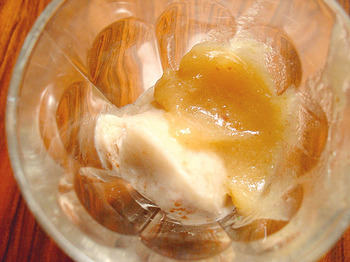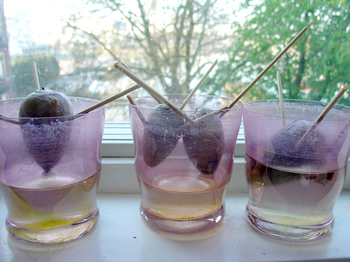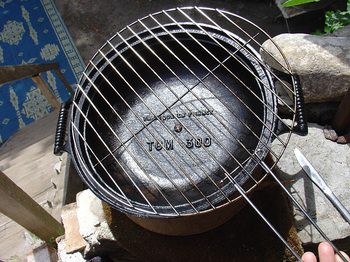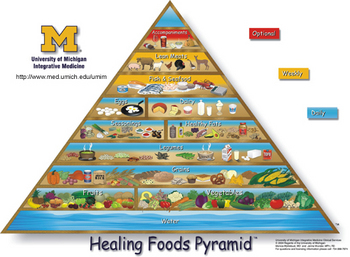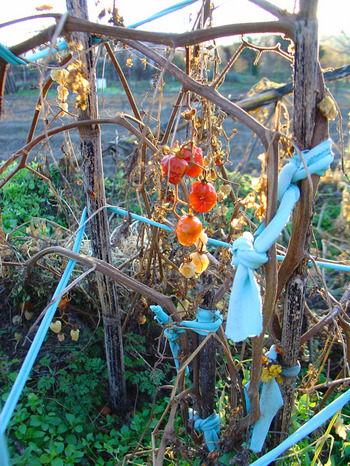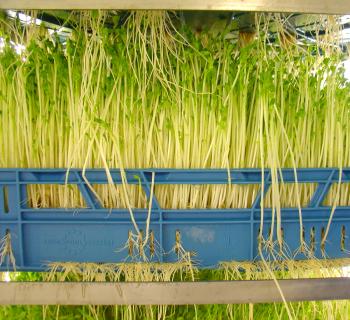Industrial yet green
January 17, 2007
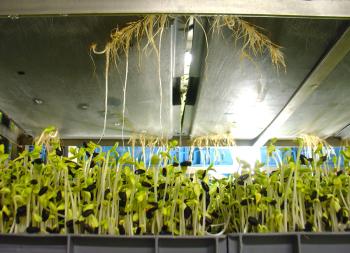
Sunflower roots make a stab at world take-over
There’s something about the Montessori School poster-child in me that loves a good self-diagnosed field trip. I can never be too busy or have too many double-booked days to find time for some on-topic hookie, leaving the warm and productive nest that is culiblog HQ to head out into the freezing rain and darkness of winter. Yesterday I paid a visit to my sprout sponsor at their massive indoor farming complex in Broek op Langedijk.
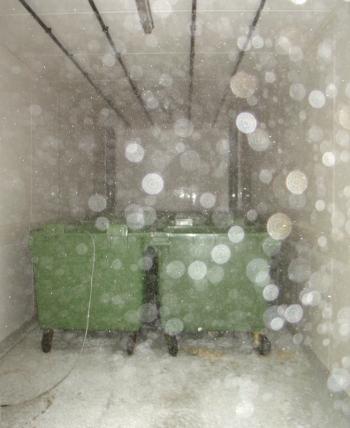
As it is outside so is it inside, only a bit warmer and a smidge darker, a watering installation at van der Plas
At the start of my tour of the sprout works, Rob van der Plas and I were greeted by an employee on a bike. The indoor farm is definitely large enough to need one and for a company that started off sprouting from a single bucket, the scale of their operations is impressive. Although I’m imagining that this is standard for all sprouting installations, I can’t recall having ever been in a cleaner environment. And I have a Jewish mother and have worked with the European Space Agency, so I know what clean is. This place was crazy clean. Confronting, yet clarifying, I was by far the dirtiest thing on-site.
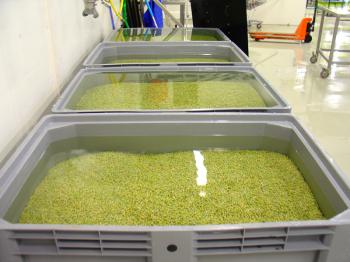
The sprouting process begins with a good soak
Van der Plas Sprouts is the Netherlands biggest sprout producer and is in the process of becoming mostly organic. Sprouting seeds, grains and beans on this scale is water-intensive and I asked the brothers van der Plas about their water use. Had they investigated the possibility of implementing grey-water systems? They informed me that they had done some research into the matter only to discover that their grey-water wasn’t really grey enough! Story to be continued, but the northwest of the NL is indeed a water-rich area, so to say that water is dirt cheap would be completely bass-ackwards. In this part of the Polar Circle, water is considerably cheaper than dirt.
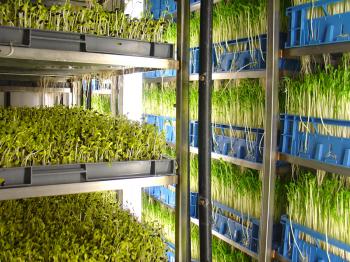
Sunflower seed sprouting on the left, peas on the right
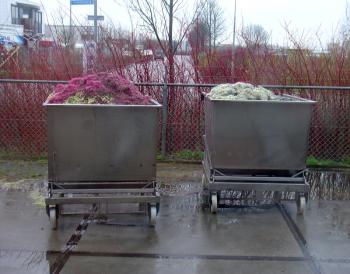
Walking up towards the indoor farm, I actually thought that these were decorative planters and only realised much later that this was the ‘waste product’ at the end of the day.
debra at 15:31 | | post to del.icio.us

